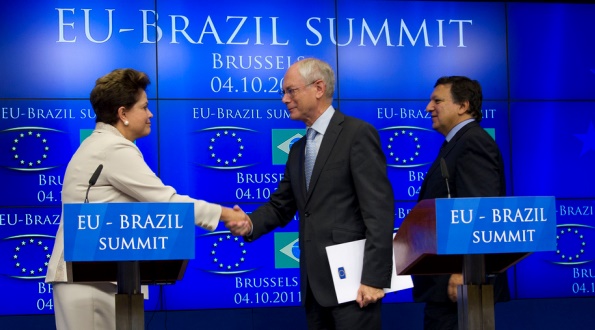BECOME A MEMBER
>JOIN
How the EU Is Cooperating with Strategic Partners in Countering Organized Crime

The European Union (EU) has acquired a series of competences in the area of justice and home affairs (JHA) over the last years and has become more active in the fight against organized crime, not only internally but also externally, research fellow Thomas Renard notes in his working paper “Partners in crime? The EU, its strategic partners and international organised crime.”
Although the EU remains a modest player at the global level, it has become an interlocutor, and sometimes even a partner, in terms of combating various dimensions of organized crime, including drug-trafficking. In his paper, Thomas Renard focuses specifically on the EU’s cooperation with its strategic partners on international crime-related issue. He describes organized crime as a security challenge, particularly to Europe, and reviews the EU’s strategic approach to cope with this challenge, and how it is implemented. Subsequently, Renard looks at the EU’s cooperation with its strategic partners against organized crime, with a view to assessing the general effectiveness of these partnerships.
He concludes that many strategic partnerships are still under-delivering, but most of them hold large potential for further cooperation.
To read the full paper, please click here.
Photo courtesy of President of the European Council: Ms Dilma Rousseff, President of Brazil, shakes hands with President Herman Van Rompuy after the EU-Brazil Summit Press Conference, 4 October 2011. Brazil and the EU are connected by the same narco-trafficking route. They have therefore many incentives to cooperate. So far cooperation has taken place mainly in the context of two EU-led projects to curb narco-trafficking between Latin America and West Africa by sea (SEACOP) and by air (AIRCOP), writes Thomas Renard.

